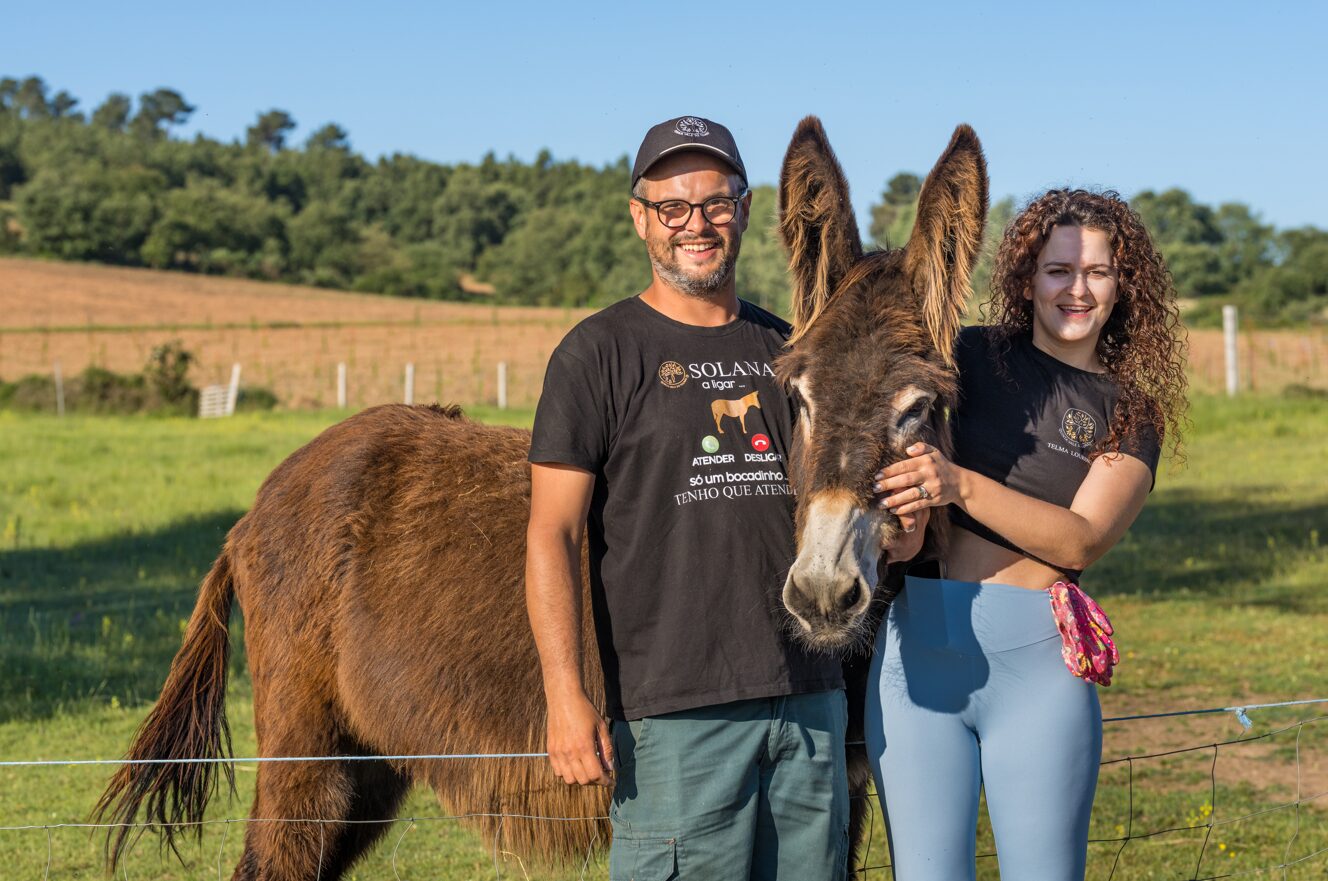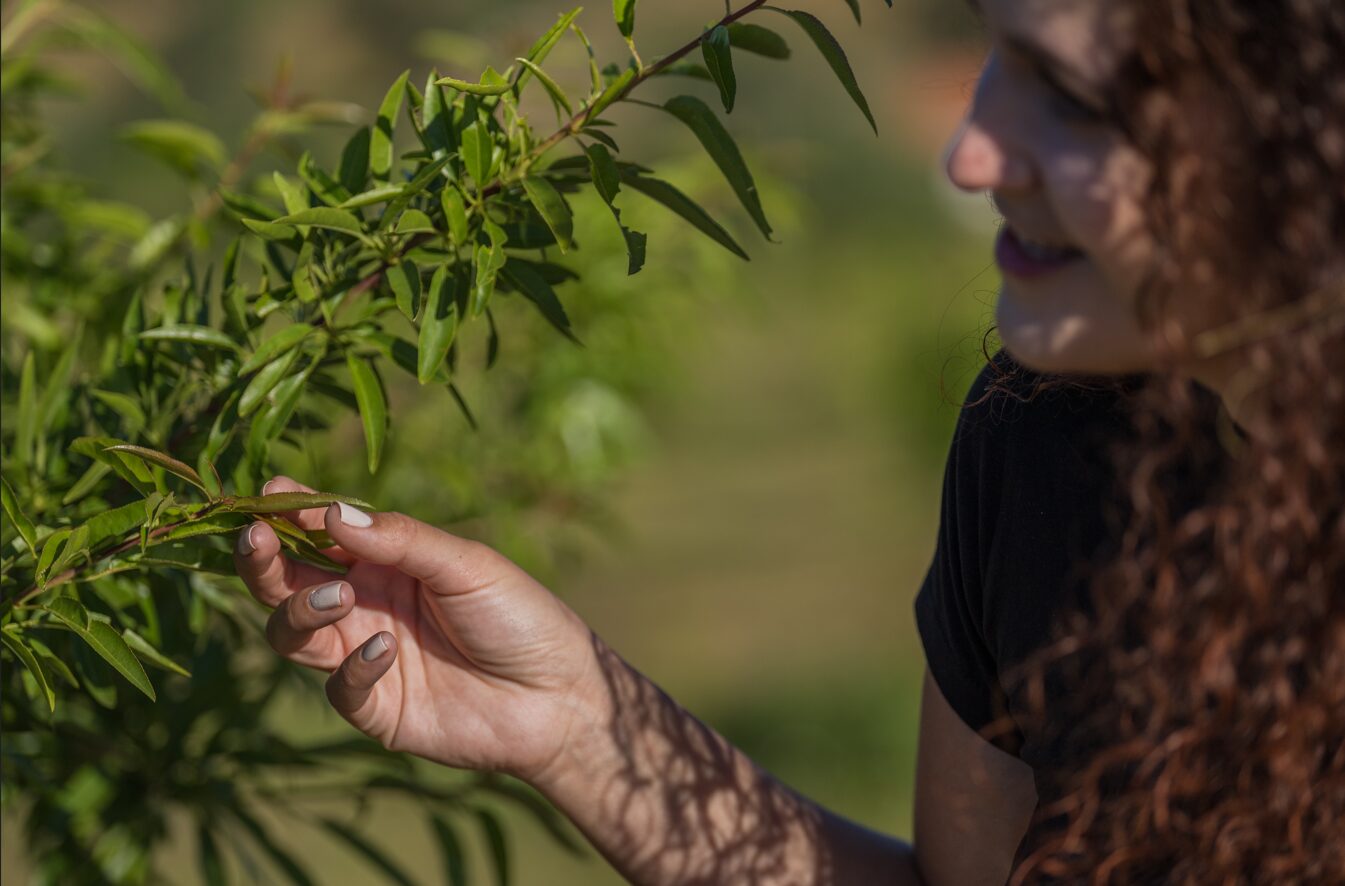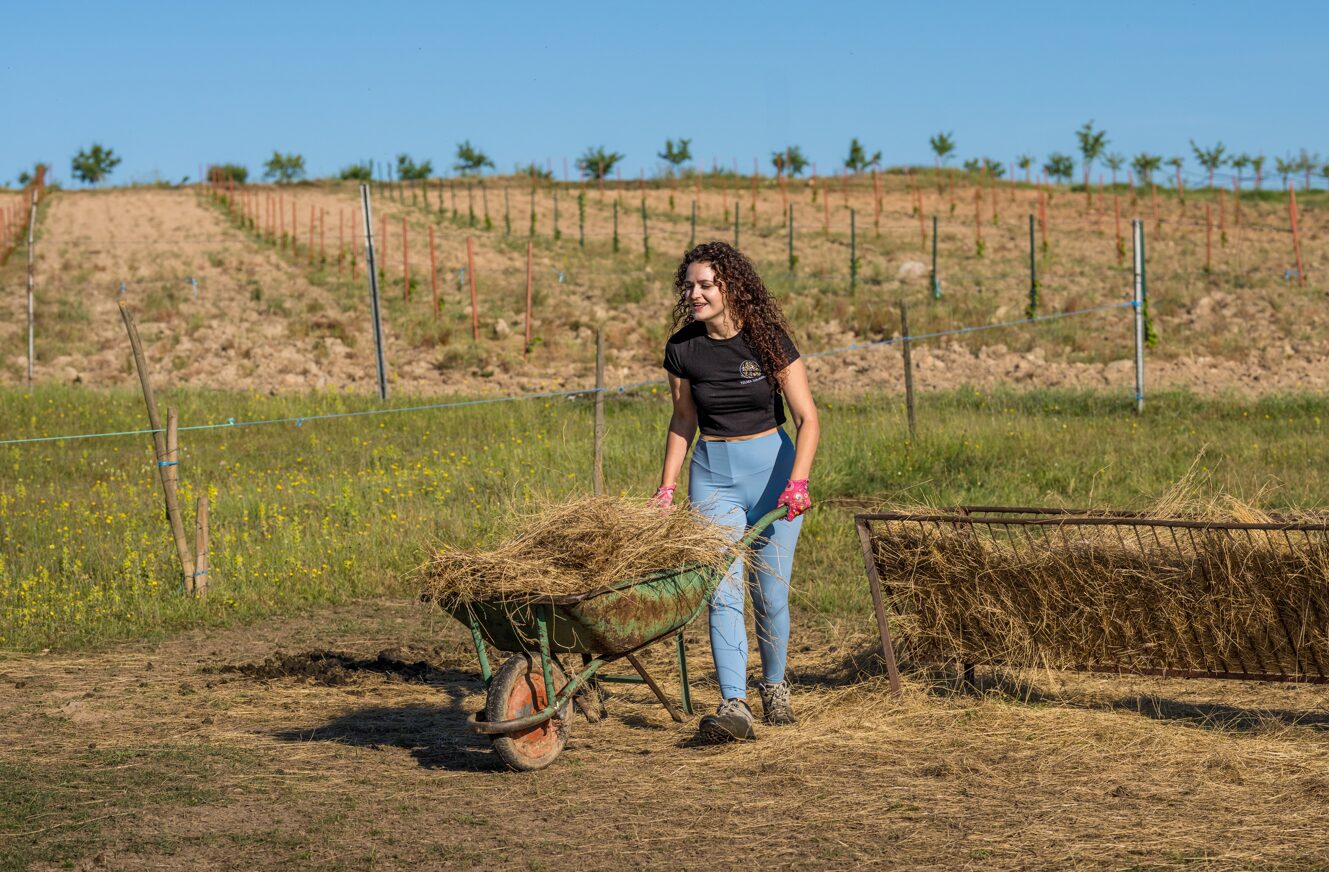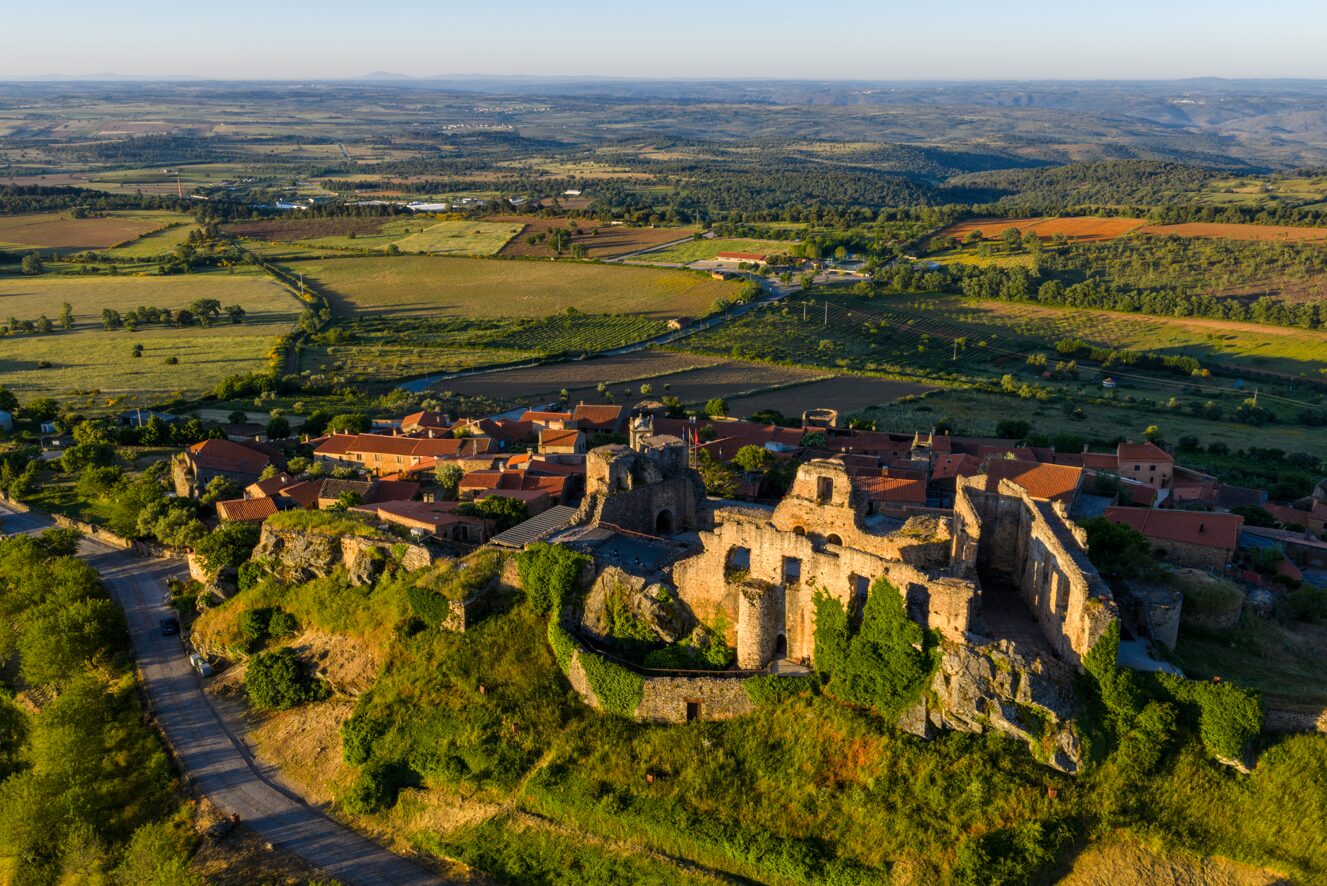On the slopes of Figueira de Castelo Rodrigo, in the heart of the Greater Côa Valley, Quinta Vale do Tourão is much more than a farm – that’s what makes it so special and committed to the Wild Côa Network, of which it is a member. It is the reflection of a conscious return to the land, where nature and people find their place again. After a decade in France, Telma Lourenço and Xavier Mendo decided to return to their origins and transform the family farm into a living space of reconnection – with the landscape, with rural heritage and with natural cycles.

The call of a regenerating valley
Telma, the third generation of a family of pastors, felt she couldn’t – and didn’t want to – abandon this legacy. But she wanted to reinvent it. And so, using the milk of her own sheep, she created a pioneering line of handmade soaps, being the first to do so in Portugal when she started the project.
With 38 hectares in organic production, Quinta Vale do Tourão is today an example of how agri-food production can integrate the principles of rewilding. Instead of dominating the territory, the aim here is to listen and adapt to it. Almond groves, olive groves, hazelnut trees, vines and a small dried flower plantation are cultivated with ecological criteria, in a biological regime, respecting the rhythms of the soil and water. The irrigation system is solar-powered and activated only in the hottest months, ensuring that the plants grow with the minimum of interference.
The sheep’s wool, meanwhile, is used to replace industrial geotextiles, retaining moisture in the soil and improving fertility in a natural and circular way, taking advantage of a product that had been losing value and which gains new functionality here. ‘We use the wool from our sheep to build drains on the farm instead of buying geotextiles – a more effective, long-lasting and sustainable solution,’ explains Telma.

At Quinta Vale do Tourão, native species are an integral part of this young couple’s life and business. The churra mondegueira sheep breed and the mirandesa asinina, both native and endangered, are preserved with care and closeness. There are many stories shared between humans and animals, which also extend to wildlife. It is present and its coexistence with domestic animals is viewed naturally. With good fencing and livestock guarding dogs, conflict is avoided and coexistence is promoted. Balance is possible – and that’s what is practised here every day.
“With regard to coexistence with wild animals, it happens naturally. Everyone is essential and important in the ecosystem.” The couple faces this challenge with natural optimism and realise that the ecosystem is made up of functional parts that have to work together in order to be balanced.
Working with the territory, not in spite of it
Being part of the Wild Côa Network is, for Telma and Xavier, a natural extension of what they already experience in their daily lives. Networking with other producers, artisans, guides and local projects reinforces the idea that regenerating the territory, both environmentally and socio-economically, can only be done together.
Sharing experiences, mutual support and the creation of collective value make this network a true social ecosystem, just as important as the ecological one. ‘Each of us adds something unique to the territory,’ says Telma. ‘It’s in bringing these synergies together that the real wealth of the region lies.’

Quinta Vale do Tourão doesn’t live closed in on itself. On the contrary: it is open to anyone who wants to get to know this way of life in an authentic and participatory way. Artisanal cheese workshops, visits to the Mirandese donkeys or the sponsorship of olive and almond trees are just some of the experiences on offer here.
The idea is simple: to share what is done, without spectacle or artifice, and to create lasting bonds between those who care for the land and those who visit it. The link with Rewilding Portugal has strengthened this desire to host. It gives visibility to the farm’s work and attracts a public that values what is built here: a model of life where production, conservation and the natural beauty of these spaces go hand in hand.
A future built with patience
Quinta Vale do Tourão’s path is taken step by step, always with its feet firmly on the ground. The future is not a rush, but a promise – that it is possible to produce with respect, live with balance and restore the land with your own hands, a heart full of will and a mind full of vision and planning.
Telma and Xavier know that every decision counts and believe that if we give nature time, it will always know how to return. The land just needs us to listen to it. And that’s exactly what they do here.
